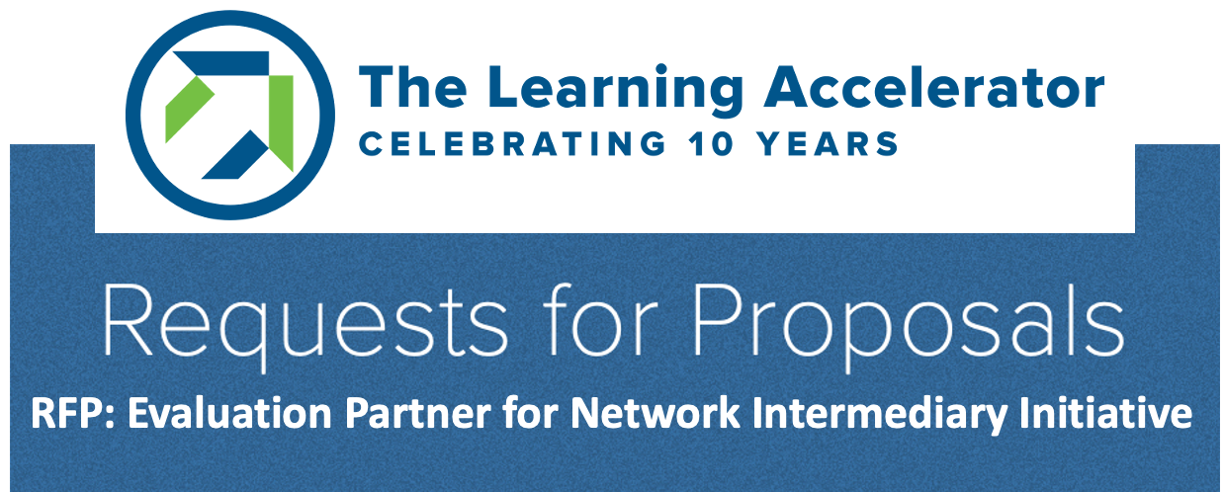Using Data to Advocate for Equitable Education

In the words of the late John Lewis, “When you see something that is not right, not fair, not just – you have to speak up. You have to say something; you have to do something.” At The Learning Accelerator (TLA), we resonate with this call to action, recognizing the manifold challenges students face across their educational journeys. From learning differences to social issues, addressing these challenges necessitates a collective effort from educators, parents, policymakers, and community members. To empower advocates in this crucial mission, TLA developed the Data Advocacy Guide, and its accompanying workbook and course. This resource aims to equip leaders like yourselves with the knowledge and tools to effectively leverage data in fostering equitable educational experiences.
Advocacy in Education: Charting a Course for Change
At TLA, we are committed to advancing a research-informed vision for equitable teaching and learning, leading us to the development of this course to help educators leverage the strategies and resources in our Data Advocacy Guide. In the realm of education, advocacy is a potent force for positive transformation. As we prepared this guide, we sought insights from educators, and their overarching desire was clear: they wanted a guide that elucidated how to tell compelling stories using both numbers (quantitative data) and voices (qualitative data). Educators emphasized the importance of understanding how data can elevate advocacy efforts while exploring the nuances of data collection, analysis, and application in driving meaningful change specific to each stakeholder’s role.
Why is data crucial for advocacy in education? Data serves as a spotlight, illuminating the truth of students’ academic, mental, emotional, and physical wellbeing. It highlights areas that are working for all students and those in need of improvement. Furthermore, data becomes the impetus for dismantling systems that have historically marginalized students, contributing to community, economic, and social barriers and instability.
What You Will Learn in This Course
The Data Advocacy Guide serves as a compass for educators, students, families, and community members navigating the complex landscape of data-driven advocacy. It offers activities, strategies, and concrete examples to support advocates in not only speaking up but also taking tangible actions to support students. As you work through this course, you will:
- Document your level of access: Utilize the guide and its accompanying workbook to create a targeted data collection plan according to your role as an advocate and specific to your level of access to data.
- Identify your purpose for advocacy: Ground your advocacy efforts in equity, ensuring a focused and purposeful approach.
- Think deliberately about changing conditions: Get clear about the specific conditions you aim to change and strategize accordingly.
- Collect, analyze, and communicate findings: Gain practical insights into collecting relevant data, analyzing it effectively, and communicating findings persuasively.
Shaping the Future Through Data-Driven Advocacy
The urgency to connect policies and practices with student outcomes is evident. The Data Advocacy Guide acts as a beacon, shining a light on the truth of what is happening, what is working, and what isn’t. Armed with this knowledge, advocates can forge a plan to champion equitable practices.
Now, more than ever, we invite stakeholders to actively engage with the guide and course on K12Leaders. By doing so, we can use data as the powerful tool it is to advocate for a brighter, more equitable educational landscape for all students.
Author: Dr. Violet Ford, The Learning Accelerator
Author Bio: Violet Ford is a Partner at The Learning Accelerator (TLA). She has held key roles in various research and evaluation projects across sectors such as community health, education, and social services, with a focus on qualitative research. She is committed to upholding the highest standards of integrity, ensuring that evaluations are conducted with sensitivity to cultural nuances and the wellbeing of the populations studied.
 Recommended1 recommendationsPublished in Leadership Voices
Recommended1 recommendationsPublished in Leadership Voices 






Responses